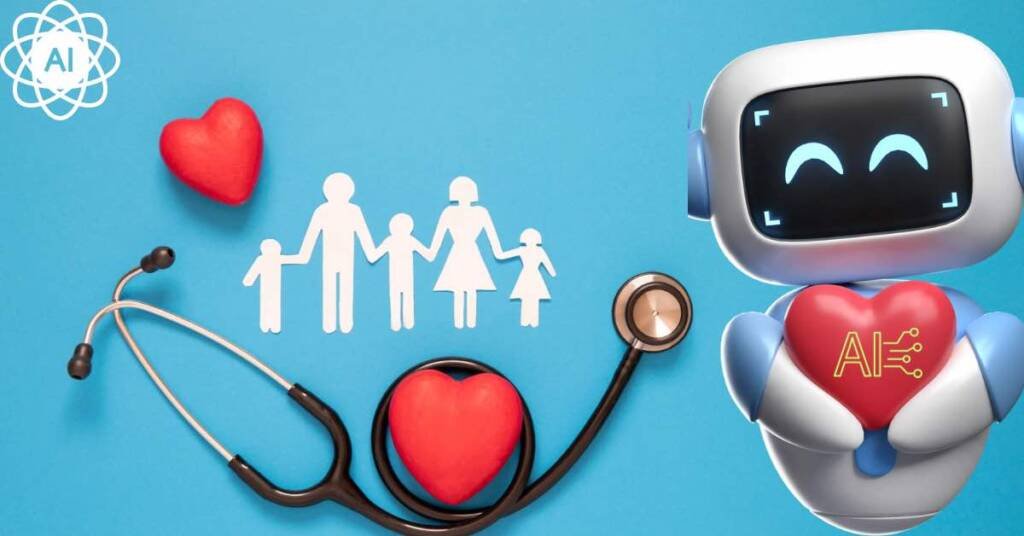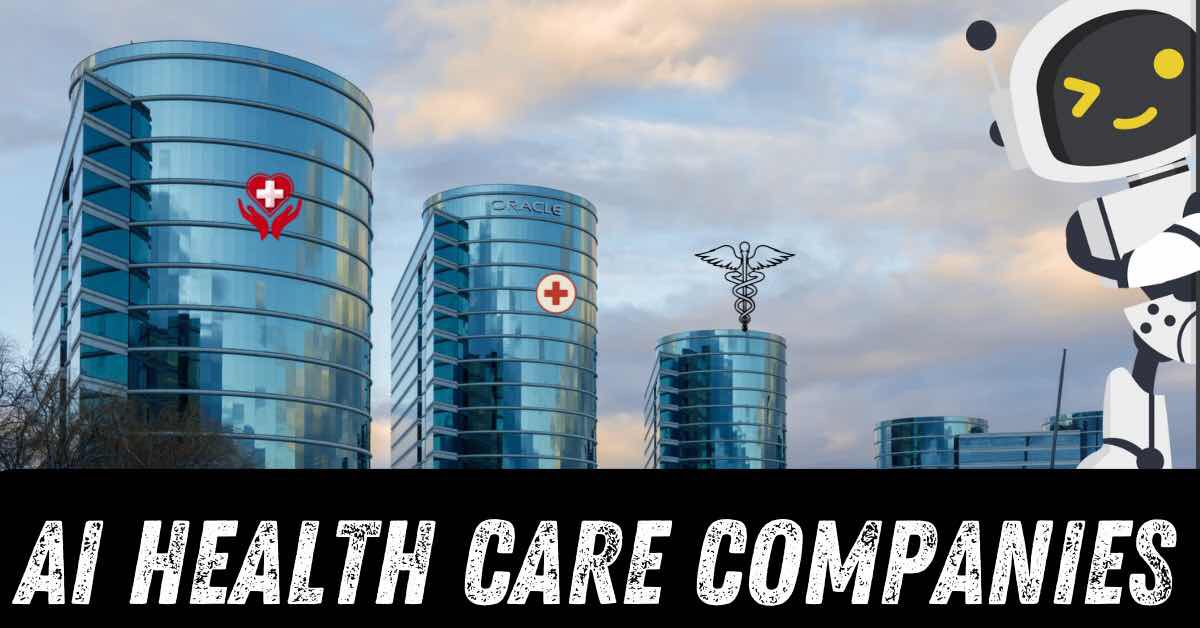Artificial intelligence healthcare companies are at the forefront of a revolutionary transformation in the medical field. With the rising complexity of healthcare challenges, these companies are stepping up to address critical issues such as early disease detection, personalized treatment plans, and improving patient outcomes.
But what exactly are artificial intelligence healthcare companies, and how are they reshaping the future of medicine?
Artificial intelligence healthcare companies are organizations that leverage advanced AI technologies to develop innovative solutions for various medical applications.
These companies use machine learning, natural language processing, and data analytics to enhance diagnostic accuracy, streamline clinical workflows, and discover new drugs.
By integrating AI into healthcare, these companies are making significant strides in improving efficiency, reducing costs, and ultimately saving lives.
Key-Points
What is Artificial Intelligence in Healthcare?

Artificial intelligence (AI) in healthcare is more than just a buzzword—it’s a transformative force. AI utilizes algorithms and machine learning to analyze complex medical data. This technology mimics human cognition and offers unprecedented accuracy and efficiency in diagnosing, treating, and predicting medical conditions.
Definition and Overview
AI in healthcare involves using advanced computational techniques to simulate human intelligence processes. These processes include learning (acquiring information and rules for using the information), reasoning (using rules to reach approximate or definite conclusions), and self-correction.
Key components of AI in healthcare:
- Machine Learning (ML): Utilizes statistical techniques to enable systems to improve with experience. Example: Predicting patient outcomes based on historical data.
- Natural Language Processing (NLP): Helps in understanding and generating human language. Example: Extracting useful information from clinical notes.
- Robotics: Assists in surgeries with precision. Example: Robotic surgery tools that perform minimally invasive procedures.
AI healthcare companies have a profound modern role in healthcare, from streamlining administrative tasks to providing personalized patient care. Imagine a future where routine tasks are automated, allowing healthcare professionals to focus more on patient care. It’s happening now, thanks to AI.
The Role of AI in Modern Healthcare
The role of AI in modern healthcare cannot be overstated. It addresses critical pain points such as diagnostic errors, treatment delays, and administrative inefficiencies. Let’s explore how AI is reshaping the landscape:
- Enhanced Diagnostics: AI systems analyze medical images (like X-rays, and MRIs) faster and more accurately than human radiologists. For instance, AI algorithms can detect early signs of diseases like cancer, which might be missed by the human eye.
- Personalized Medicine: AI tailors treatments based on individual patient data. It analyzes genetic information and lifestyle factors to suggest customized treatment plans, enhancing effectiveness. For example, IBM Watson Health uses AI to help oncologists develop more personalized cancer treatments.
- Predictive Analytics: AI predicts patient outcomes and potential health risks by analyzing historical data and identifying patterns. This can prevent diseases before they manifest.
- Administrative Efficiency: AI automates routine administrative tasks such as scheduling appointments and managing records, reducing the burden on healthcare staff and allowing them to focus on patient care.
Top Artificial Intelligence Healthcare Companies to Watch in 2024
The landscape of healthcare is evolving rapidly, thanks to the pioneering efforts of artificial intelligence healthcare companies. As we move into 2024, several companies stand out for their innovative solutions and significant impact on the industry. Let’s dive into some of the top Artificial Intelligence healthcare companies to watch this year.
1. PathAI
PathAI, based in the USA, is revolutionizing pathology with its AI-driven diagnostics. By using machine learning, PathAI aims to improve the accuracy of disease diagnosis, particularly in cancer. Their technology assists pathologists in identifying critical patterns in tissue samples, enhancing diagnostic precision and treatment plans.
2. Zebra Medical Vision
Zebra Medical Vision, an Israeli company, has developed an impressive array of AI algorithms that analyze medical imaging to detect a variety of conditions, from liver disease to breast cancer. Their AI solutions are integrated into healthcare systems worldwide, making early diagnosis more accessible and reliable.
3. Freenome
Freenome, headquartered in California, focuses on early cancer detection through a combination of AI and advanced biology. Their blood tests leverage machine learning to identify cancer at its earliest stages, significantly improving patient outcomes.
4. Buoy Health
Buoy Health uses AI to provide patients with preliminary diagnoses based on their symptoms. This Boston-based startup aims to reduce unnecessary doctor visits and empower patients with accurate health information. By analyzing a vast amount of medical data, Buoy Health offers personalized advice and care recommendations.
5. IBM Watson Health
IBM Watson Health remains a leader among AI healthcare companies. Their AI platform, Watson, analyzes massive datasets to provide insights that help healthcare providers make better clinical decisions. Watson’s applications range from oncology to genomics, showcasing the versatility and power of AI in healthcare.
6. Tempus
Tempus, based in Chicago, integrates AI and data analytics to provide personalized cancer care. By collecting and analyzing clinical and molecular data at scale, Tempus offers actionable insights that help oncologists tailor treatments to individual patients, improving outcomes.
7. Aidoc
Aidoc, another prominent player in AI healthcare, specializes in medical imaging. Their AI solutions support radiologists by quickly identifying critical conditions in scans, such as brain hemorrhages or pulmonary embolisms, thus speeding up diagnosis and treatment.
These leading AI healthcare companies exemplify how artificial intelligence is transforming the healthcare industry. From early diagnosis to personalized treatment plans, their innovations are paving the way for a healthier future.
Example
Consider the impact of Aidoc’s AI technology in emergency departments. By rapidly flagging critical conditions, their AI allows doctors to prioritize urgent cases, reducing the time to treatment and potentially saving lives.
Breakthroughs and Innovations by AI Healthcare Companies
Artificial intelligence (AI) is not just a buzzword in healthcare; it’s a game-changer. AI healthcare companies are leading the charge with innovative solutions that are transforming medicine and improving patient care. Let’s explore some groundbreaking advancements in AI that are reshaping the healthcare industry.
AI Healthcare Companies Transforming Medicine
Drug Discovery:
- BenevolentAI: Applies AI to identify new drug candidates by analyzing biomedical data, accelerating the discovery process and reducing costs.
- Atomwise: Utilizes AI-driven virtual screening to predict the effectiveness of existing drugs against new diseases, expediting drug development timelines.
These innovative AI solutions demonstrate the immense potential of artificial intelligence in revolutionizing healthcare. From improving diagnostic accuracy to personalizing treatment plans and accelerating drug discovery, AI is paving the way for a more efficient and effective healthcare system.
Impact of AI Companies on Healthcare Industry
AI’s integration into healthcare has profound implications:
- Improved Access: Remote patient monitoring through AI-enabled devices enhances access to care, particularly in underserved areas.
- Ethical Considerations: AI raises concerns about patient privacy and the ethical use of data, prompting discussions on regulatory frameworks and transparency.
Example
Consider how AI-driven diagnostics by PathAI have transformed cancer detection, reducing diagnostic errors and improving survival rates for patients worldwide.
Challenges Faced by AI Healthcare Companies
Artificial intelligence (AI) has brought remarkable advancements to healthcare, yet it also presents significant challenges and ethical considerations that AI healthcare companies must navigate. Let’s delve into some of the key challenges faced by these companies in implementing AI solutions.
Data Privacy and Security
- Challenge: AI systems require access to vast amounts of sensitive patient data, raising concerns about data privacy and security breaches.
- Solution: Implement robust encryption and data anonymization techniques to protect patient information. Compliance with regulations such as HIPAA ensures confidentiality.
Ethical Concerns in AI Implementation
Challenge
Ethical dilemmas arise regarding AI’s decision-making capabilities, especially in critical medical situations.
Solution
Establish clear guidelines for AI use in healthcare decision-making, emphasizing transparency and accountability. Ethical review boards can evaluate AI algorithms for fairness and bias.
Regulatory and Compliance Issues
- Challenge: AI healthcare solutions must adhere to stringent regulatory standards, which vary across regions and countries.
- Solution: Collaborate with regulatory bodies to ensure AI systems meet legal requirements. Continuous monitoring and adherence to standards like FDA approvals are crucial for compliance.
Conclusion
Artificial intelligence is transforming healthcare with unprecedented advancements in diagnostics and personalized medicine. Stay informed about the latest innovations in AI healthcare by subscribing to our updates today!
FAQS
1. What is the best medical AI?
The best medical AI varies based on its application. IBM Watson Health is renowned for diagnostics, while Google’s DeepMind excels in predictive analytics and research. These platforms leverage vast datasets to provide accurate and efficient healthcare solutions.
2. What company is using AI in healthcare?
Many companies use AI in healthcare, including IBM, Google, and Microsoft. For instance, IBM Watson Health focuses on data-driven diagnostics, while Google’s DeepMind applies AI for disease prediction and drug discovery.
3. What is the future of AI in healthcare?
The future of AI in healthcare is promising, with advancements in personalized medicine, predictive analytics, and robotic surgeries. AI is expected to enhance diagnostics, patient care, and operational efficiency, revolutionizing healthcare delivery.
4. How is artificial intelligence used in healthcare?
Artificial intelligence is used in healthcare for diagnostics, treatment planning, patient monitoring, and administrative tasks. It helps analyze medical images, predict patient outcomes, and streamline hospital operations, improving overall care quality.
5. What are the AI medical imaging companies in the US?
Prominent AI medical imaging companies in the US include Zebra Medical Vision, Aidoc, and Viz.ai. These companies develop AI solutions to enhance image analysis, improving the accuracy and speed of diagnostics.
